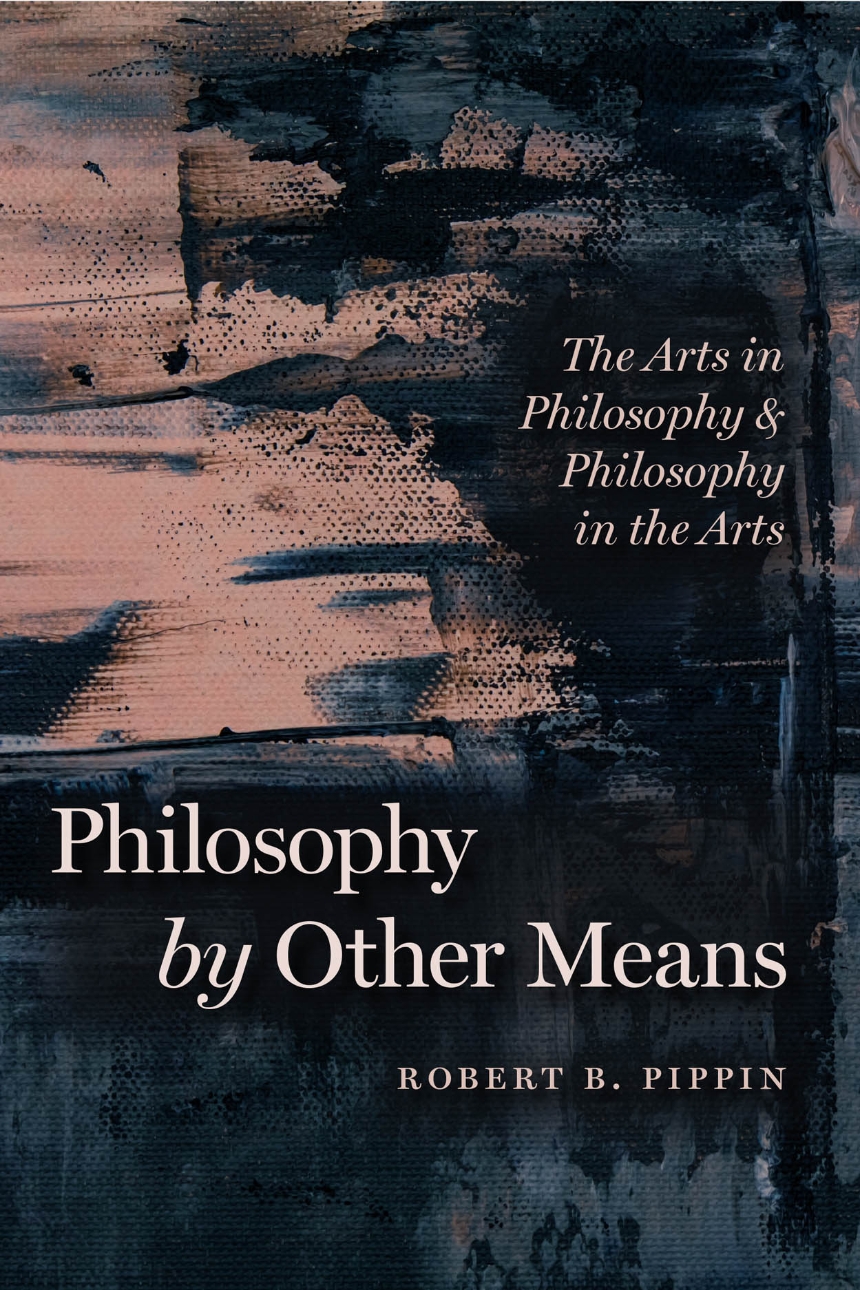Philosophy by Other Means
The Arts in Philosophy and Philosophy in the Arts
9780226770802
9780226770772
9780226770949
Philosophy by Other Means
The Arts in Philosophy and Philosophy in the Arts
Throughout his career, Robert B. Pippin has examined the relationship between philosophy and the arts. With his writings on film, literature, and visual modernism, he has shown that there are aesthetic objects that cannot be properly understood unless we acknowledge and reflect on the philosophical concerns that are integral to their meaning. His latest book, Philosophy by Other Means, extends this trajectory, offering a collection of essays that present profound considerations of philosophical issues in aesthetics alongside close readings of novels by Henry James, Marcel Proust, and J. M. Coetzee.
The arts hold a range of values and ambitions, offering beauty, playfulness, and craftsmanship while deepening our mythologies and enriching the human experience. Some works take on philosophical ambitions, contributing to philosophy in ways that transcend the discipline’s traditional analytic and discursive forms. Pippin’s claim is twofold: criticism properly understood often requires a form of philosophical reflection, and philosophy is impoverished if it is not informed by critical attention to aesthetic objects. In the first part of the book, he examines how philosophers like Kant, Hegel, and Adorno have considered the relationship between art and philosophy. The second part of the book offers an exploration of how individual artworks might be considered forms of philosophical reflection. Pippin demonstrates the importance of practicing philosophical criticism and shows how the arts can provide key insights that are out of reach for philosophy, at least as traditionally understood.
The arts hold a range of values and ambitions, offering beauty, playfulness, and craftsmanship while deepening our mythologies and enriching the human experience. Some works take on philosophical ambitions, contributing to philosophy in ways that transcend the discipline’s traditional analytic and discursive forms. Pippin’s claim is twofold: criticism properly understood often requires a form of philosophical reflection, and philosophy is impoverished if it is not informed by critical attention to aesthetic objects. In the first part of the book, he examines how philosophers like Kant, Hegel, and Adorno have considered the relationship between art and philosophy. The second part of the book offers an exploration of how individual artworks might be considered forms of philosophical reflection. Pippin demonstrates the importance of practicing philosophical criticism and shows how the arts can provide key insights that are out of reach for philosophy, at least as traditionally understood.
304 pages | 7 halftones | 6 x 9 | © 2021
Art: Art Criticism
Literature and Literary Criticism: General Criticism and Critical Theory
Philosophy: Aesthetics, General Philosophy
Reviews
Table of Contents
Part One: The Arts in Philosophy
1. Philosophical Criticism
2. Kant and the Problem of Tragedy
3. The Status of Literature in Hegel’s Phenomenology of Spirit: On the Lives of Concepts
4. The Absence of Aesthetics in Hegel’s Aesthetics
5. Hegel on Painting
6. Authenticity in Painting: Remarks on Michael Fried’s Art History
7. Photography as Art: Fried and Intention
8. Adorno, Aesthetic Negativity, and the Problem of Idealism
Part Two: Philosophy in the Arts
9. On Maisie’s Knowing Her Own Mind
10. Subjectivity: A Proustian Problem
11. The Shadow of Love: The Role of Jealousy in Proust’s À la recherche du temps perdu
12. The Paradoxes of Power in the Early Novels of J. M. Coetzee
13. Philosophical Fiction? On J. M. Coetzee’s Elizabeth Costello
Acknowledgments
Works Cited
Index
1. Philosophical Criticism
2. Kant and the Problem of Tragedy
3. The Status of Literature in Hegel’s Phenomenology of Spirit: On the Lives of Concepts
4. The Absence of Aesthetics in Hegel’s Aesthetics
5. Hegel on Painting
6. Authenticity in Painting: Remarks on Michael Fried’s Art History
7. Photography as Art: Fried and Intention
8. Adorno, Aesthetic Negativity, and the Problem of Idealism
Part Two: Philosophy in the Arts
9. On Maisie’s Knowing Her Own Mind
10. Subjectivity: A Proustian Problem
11. The Shadow of Love: The Role of Jealousy in Proust’s À la recherche du temps perdu
12. The Paradoxes of Power in the Early Novels of J. M. Coetzee
13. Philosophical Fiction? On J. M. Coetzee’s Elizabeth Costello
Acknowledgments
Works Cited
Index
